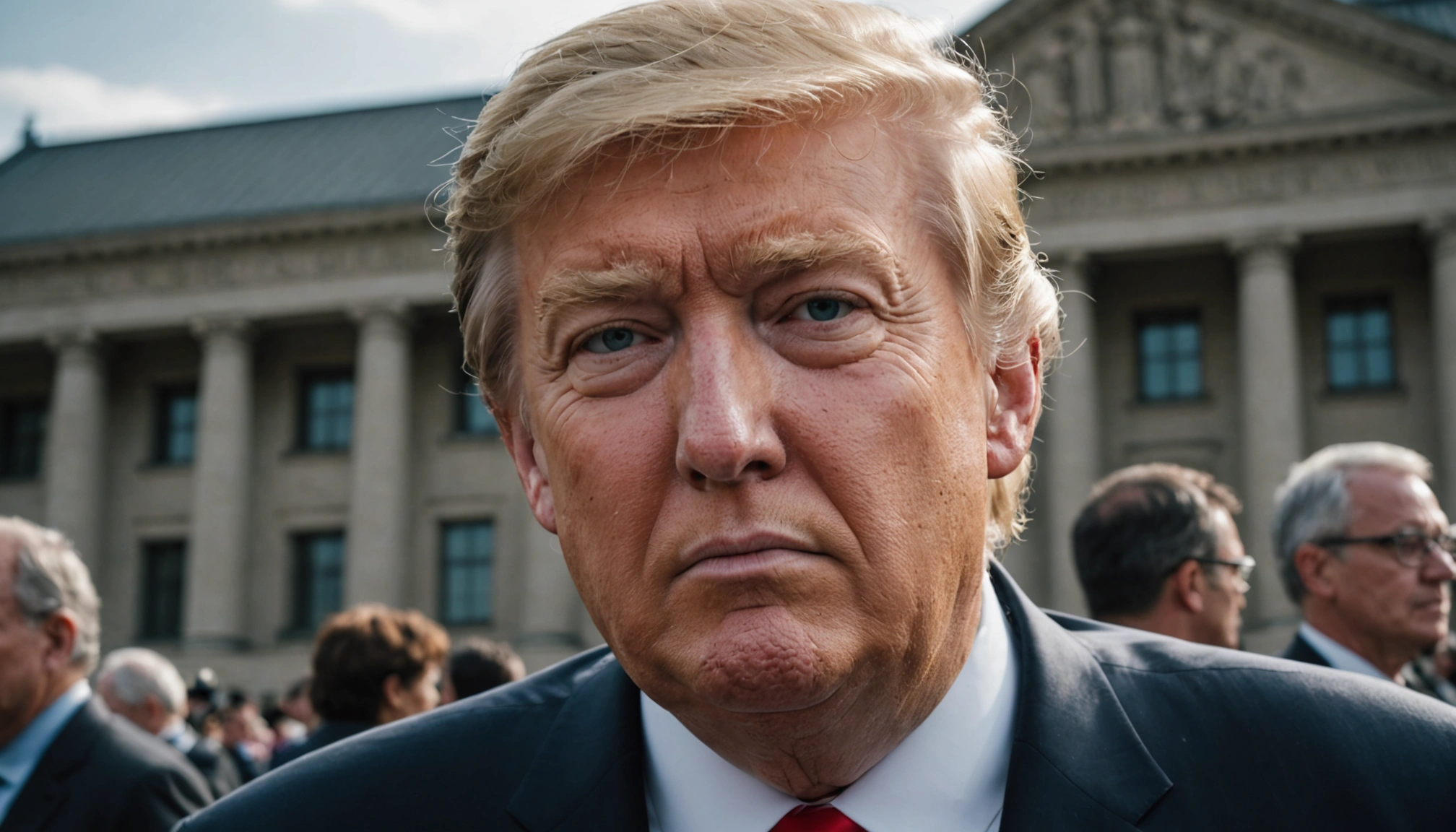Trump's Trade War Threatens to Upend Germany's Economic Model

Germany, long a bastion of export-led growth, is facing a significant challenge to its economic model as a result of renewed trade tensions under a potential second Trump administration. The prospect of increased tariffs and trade barriers has sent ripples of concern through German industries, raising fears of recession and a fundamental shift in the nation's economic landscape.
The Vulnerability of Export-Driven Growth
Germany's economic strength has traditionally relied on its robust export sector. Goods exports account for a substantial 36.1% of Germany's GDP, making the country particularly susceptible to disruptions in global trade flows. The United States is a major trading partner, with Germany exporting approximately €161.4 billion worth of goods to the U.S. in 2024, representing 3.7% of Germany's GDP. This dependence on exports, while historically a source of prosperity, has become a vulnerability in the face of rising protectionism.
The German growth model, heavily reliant on foreign demand, is now in serious peril. Manufacturing orders are in recessionary territory, and car manufacturers and suppliers have announced job cuts. Other industries are also feeling the pinch. The German unemployment rate has risen from 5% in 2022 to 6% this fall, and the economy is likely to continue its prolonged period of stagnation.
The Impact of Potential Tariffs
The threat of tariffs looms large over the German economy. Former President Trump has floated plans for blanket tariffs of 10% to 20% on virtually all imports, as well as tariffs of 60% or more on goods from China. A report by the German Economic Institute (IW) found that if a Trump administration imposed tariffs of 20% on the EU, and the bloc retaliated in kind, euro zone GDP would slump 1.3% in 2027 and 2028, with a fall of as much as 1.5% in Germany.
The Kiel Institute's KITE model simulations show that tariffs of 25% on European goods would shrink the European economy by an average of 0.4% in real GDP terms within the first year. Germany would see a decrease of up to 20% in exports to the U.S., translating to a 1.5% drop in Germany's total exports. The manufacturing sector, particularly the automotive industry, would be the hardest hit, with nominal production potentially declining by as much as 4%.
Even reciprocal tariffs, where the U.S. increases tariffs on products by the amount levied by its trading partners, would reduce German exports to the United States by less than 3%. However, a blanket U.S. tariffs increase of 20% would cause German exports to the U.S. to fall by around 15%.
Germany's Response and Mitigation Strategies
In response to these challenges, Germany's new government, led by Chancellor Friedrich Merz, has focused on a wholesale economic reboot. The coalition agreement between Merz's center-right Christian Democrats and the center-left Social Democrats reads like an economic war plan, with tax cuts, energy price reductions, and a blitz of public-private investment funds. The aim is to strengthen the price competitiveness of the German economy and regain its competitive edge as global headwinds intensify.
Other proposed measures include lowering electricity taxes, reducing grid fees, abolishing a levy on gas prices, and introducing an industrial electricity rate to revive industrial production. Voluntary overtime is to be made tax-free, and the steel industry is declared to be of "key strategic importance," with endorsements for carbon capture and storage technology and tax breaks for electric vehicles.
However, some economists have expressed concerns about the lack of ambition and clear implementation strategies in the coalition deal. Marcel Fratzscher, president of the German Institute for Economic Research, lamented the lack of a broader tax overhaul and the underwhelming emphasis on Europe's strategic role.
To mitigate risks from potential U.S. protectionist measures, Germany and the EU are also prioritizing deepening the single market, especially in services, and pursuing new trade agreements with Latin America, Asia, and Africa to open up alternative markets. Europe should swiftly ratify the EU-Mercosur agreement.
The Broader Geopolitical Context
The potential trade war is not occurring in a vacuum. The U.S.-China trade war adds another layer of complexity, with Germany caught in the middle. As the U.S. imposes tariffs on Chinese goods, there is a risk that these goods may be redirected to European markets, increasing competition for German manufacturers.
Germany has expressed concern over the "very massive escalation" of the tariff war between the U.S. and China, calling for fewer trade barriers and a negotiated solution that all sides can live with. The German government has also welcomed the EU's decision to suspend its retaliatory tariffs on U.S. goods, signaling a desire for a fundamental agreement.
Implications for the Future
The challenges posed by a potential trade war could force Germany to re-evaluate its economic model and seek new sources of growth. This could involve a greater focus on domestic demand, investment in innovation and technology, and diversification of export markets.
The German government's efforts to boost the economy through tax cuts, energy price reductions, and investment funds are aimed at strengthening the country's competitiveness and resilience. However, the success of these measures will depend on their effective implementation and the broader global economic environment.
The outcome of the trade dispute will have far-reaching consequences for Germany's economy, its role in Europe, and its position in the global trading system. The coming years will be a critical test of Germany's ability to adapt and thrive in a changing world.
Conclusion
The potential trade war under a second Trump administration poses a significant threat to Germany's export-oriented economic model. Increased tariffs and trade barriers could lead to recession, job losses, and a fundamental shift in the nation's economic landscape. While Germany is taking steps to mitigate these risks through domestic policy changes and diversification of trade relationships, the challenges remain substantial. The future of Germany's economy will depend on its ability to adapt to a more protectionist global environment and find new sources of growth and prosperity.


